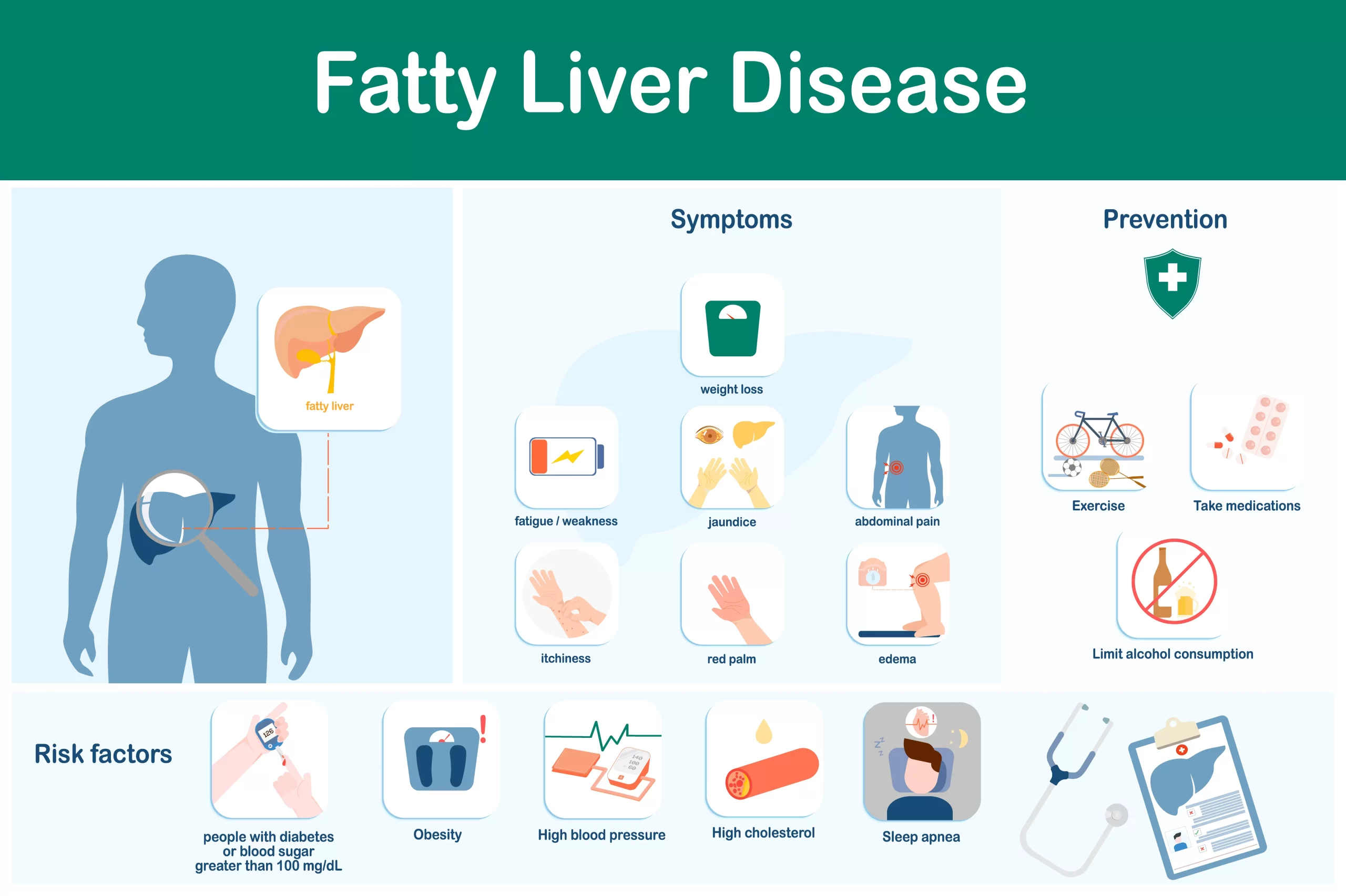Steatohepatitis, commonly known as fatty liver disease, is a condition where excess fat accumulates in the liver, leading to inflammation and potentially severe liver damage. This condition can progress to more serious liver diseases, including cirrhosis and liver cancer. The good news is that steatohepatitis can often be prevented and managed through lifestyle changes. Here are some tips to help reduce your risk and promote liver health.
Eat a Healthy, Balanced Diet
A balanced diet rich in antioxidants and essential nutrients is crucial for liver health. Here are some specific dietary recommendations:
• Avocados: These are high in healthy fats and antioxidants that help reduce liver fat and protect liver cells.
• Olive Oil: Known for its anti-inflammatory properties, olive oil can help lower liver enzyme levels and reduce fat accumulation in the liver.
• Garlic: Contains compounds like allicin and selenium that aid in liver detoxification and reduce fat accumulation.
• Fiber-Rich Foods: Whole grains, fruits, and vegetables improve digestion and support overall liver health. Fiber helps in the excretion of fats and toxins, preventing them from accumulating in the liver.
• Fatty Fish: Salmon, mackerel, and sardines are high in omega-3 fatty acids, which reduce liver fat and inflammation. These healthy fats can also improve the liver’s lipid profile.
• Nuts: Walnuts, almonds, and other nuts provide healthy fats, antioxidants, and essential nutrients that support liver function.
Stay Active and Maintain a Healthy Weight
Regular physical activity is essential for maintaining a healthy weight and preventing fat buildup in the liver. Exercise helps burn triglycerides and reduce liver fat. Aim for at least 150 minutes of moderate aerobic exercise, such as brisk walking or cycling, each week. Incorporate strength training exercises to build muscle, which can increase metabolism and aid in weight management.
Limit Alcohol Consumption
Excessive alcohol consumption is a leading cause of alcoholic fatty liver disease. The liver processes alcohol, and excessive amounts can lead to fat accumulation and liver damage. To protect your liver, limit your alcohol intake. For men, this means no more than two drinks per day, and for women, no more than one drink per day. Even better, consider reducing alcohol consumption to occasional use or abstaining altogether.
Get Tested for NAFLD and NASH
Non-Alcoholic Fatty Liver Disease (NAFLD) and Non-Alcoholic Steatohepatitis (NASH) are common liver conditions that can progress to more severe liver diseases if left untreated. Talk to your doctor about getting tested for these conditions, especially if you have risk factors such as obesity, type 2 diabetes, or a family history of liver disease. Early detection is key to reversing the condition before it progresses. Routine check-ups and liver function tests can help monitor your liver health and catch any issues early on.
Manage Other Health Conditions
Conditions such as diabetes, high cholesterol, and high blood pressure can increase the risk of developing fatty liver disease. Managing these conditions through medication, diet, and lifestyle changes can help reduce this risk. Regular monitoring and working closely with your healthcare provider to manage these conditions can protect your liver health.
Stay Hydrated
Drinking plenty of water helps the liver function properly and aids in the elimination of toxins. Aim to drink at least eight glasses of water a day. Staying hydrated can also help manage weight and improve overall health.
Avoid Toxins
Minimize exposure to environmental toxins, such as certain chemicals and pollutants, which can harm the liver. Use natural cleaning products and avoid unnecessary medications and supplements that can strain the liver.
Implementing these lifestyle changes can significantly reduce your risk of developing steatohepatitis and promote overall liver health. A healthy diet, regular exercise, limiting alcohol consumption, and regular medical check-ups are key steps in maintaining a healthy liver. For more information and personalized advice, consult with your healthcare provider. Taking proactive steps today can lead to better liver health and overall well-being.

